Are you trying to lose weight and looking for a healthy, straightforward way to do it? The secret might be as close as your vegetable drawer. Let’s explore how broccoli, a simple green vegetable, could be a key player in your weight loss journey. Does broccoli help you lose weight? Let’s find out and see how this ordinary veggie can make a big difference in your health and happiness.
1. Does Broccoli Help You Lose Weight?
Yes, broccoli can be a great help when you’re trying to lose weight. It’s like other veggies that are low in starch – a great ally in your fight against extra pounds. Here’s why broccoli is so good for you:
- Low in Calories and Full of Fiber: Broccoli doesn’t have many calories, so you can eat a good amount without worrying. It’s also rich in fiber, which helps you feel full longer. This fiber also slows down your digestion, helping to keep hunger at bay.
- Crowds Out Unhealthy Food: When you eat broccoli, you’re choosing healthy foods. Filling up on nutrient-rich vegetables like broccoli means you’ll have less room for high-calorie, processed foods. This simple change can make a big difference in your calorie intake.
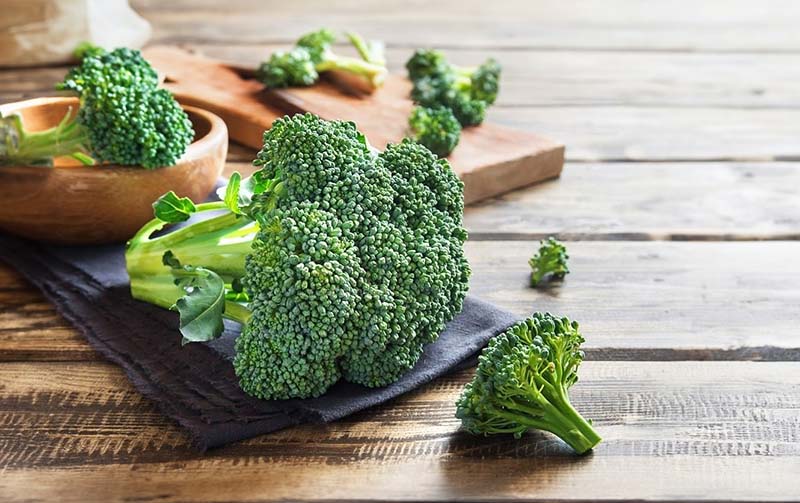
- Boosts Your Metabolism: Broccoli may increase your metabolism because of its high “thermic effect of food” (TEF). TEF is the energy your body uses to digest food. Foods with a high TEF can help you burn more calories.
- Fights Inflammation: Being overweight can lead to chronic inflammation in the body. Broccoli, a cruciferous vegetable, is known for its antioxidants which help fight inflammation.
- Improves Insulin Sensitivity and Reduces Appetite: Some studies in 2021 suggest that broccoli and similar vegetables can improve insulin sensitivity and help control your appetite, both important for managing your weight.
- May Influence Fat Cells: Early research indicates that compounds in broccoli might affect fat cell growth, which could be important for long-term weight control.
In short, adding broccoli to your diet is a wise choice if you’re trying to lose weight or keep a healthy weight. Its low calories, high fiber, potential metabolic benefits, and anti-inflammatory properties make it a valuable part of your diet.
Tips:
- Don’t just eat broccoli. Variety in your vegetables is key for the best health benefits.
- Steam or lightly cook broccoli to keep its nutrients.
- For balanced meals, combine broccoli with lean proteins and whole grains.
2. Nutritional Benefits of Broccoli for Weight Loss
Let’s look at what makes broccoli so nutritious:
- Water Content: Broccoli is about 90% water, helping you stay hydrated without extra calories.
- Macronutrients: Broccoli has only 35 calories per cup (90 grams). It’s made up of 7% carbohydrates, 3% protein, and very little fat.
- Fiber: A good source of dietary fiber, broccoli has 2.2 grams per cup, aiding digestion and fullness.
Vitamins: Broccoli is a nutritional powerhouse. In one cup, you get:
- Vitamin C: 91% of your Daily Value (DV), important for your immune system.
- Vitamin K: 77% of the DV, crucial for blood clotting and bone health.
- Folate: 15% of the DV, necessary for cell growth.
- Minerals: It also contains potassium, magnesium, iron, and calcium, important for muscles and bones.
Broccoli is not just low in calories, but also rich in important nutrients like vitamins C and K, and fiber. It’s a great addition to any diet, whether you’re trying to stay healthy or lose weight. Enjoy it both raw and cooked to get the most benefits.
3. Broccoli’s Contribution to Weight Loss
Adding broccoli to your meals as part of a balanced, healthy diet can really help with your weight loss efforts and boost your overall health. Remember, though, that weight loss is complex and involves more than just what you eat. It’s about a combination of good diet, regular exercise, stress management, and enough sleep. Let’s see how broccoli fits into this weight loss puzzle:
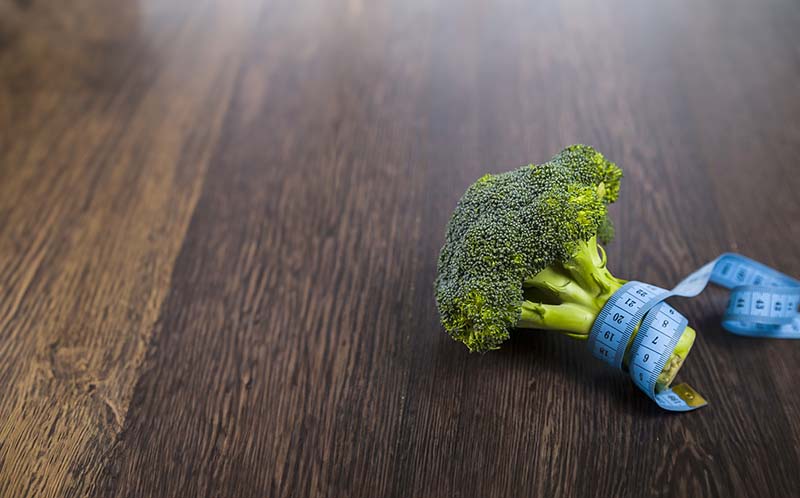
- Low in Calories: A serving of cooked broccoli has only about 50 to 65 calories, and 100 grams of it has just 39 calories. For weight loss, you need to burn more calories than you eat. Eating low-calorie foods like broccoli helps you maintain a calorie deficit.
- Keeps You Full: Broccoli is packed with fiber, around 3.3 grams per 100 grams. Fiber absorbs water and expands in your stomach, which makes you feel full and reduces your appetite. This means you’re less likely to snack between meals, helping you control your calorie intake.
- Rich in Vitamin C: Broccoli is a great source of vitamin C, which not only helps burn fat but also supports your immune system, and is good for your skin and hair. Eating vitamin C-rich foods is a great way to stay healthy while you’re losing weight.
- Vitamin K for Metabolism: Broccoli contains vitamin K, which is good for metabolizing glucose and fats. This can be especially helpful in reducing belly fat, a common weight loss goal.
- Carotenoids for Fat Burning: The carotenoids in broccoli can help your body burn fat. Eating foods high in carotenoids can support your efforts to lose body fat.
- Hydration and Metabolism: Broccoli is about 90% water, making it great for keeping your metabolism healthy and staying hydrated. A well-functioning metabolism is key for burning calories effectively.
Broccoli can be a really useful part of your weight loss plan. It’s low in calories and high in fiber, vitamins (like C and K), and other beneficial compounds. Combined with a well-rounded approach that includes exercise, stress management, and good sleep, broccoli can significantly contribute to your weight loss efforts.
4. Additional Health Benefits of Broccoli
Broccoli isn’t just great for weight management; it has numerous other health benefits:
- Cardiovascular Health: Eating broccoli and other cruciferous vegetables can boost heart health by improving blood flow and strengthening the heart. Studies show that broccoli can help relax blood vessels, leading to lower blood pressure.
- Eye Health: Broccoli is loaded with vitamin A and antioxidants, which are great for eye health. These nutrients can help reduce the risk of age-related macular degeneration and cataracts, maintaining good vision.
- Cancer Prevention: The antioxidants in broccoli, especially sulforaphane, can help prevent cell damage and potentially reduce cancer risk. Sulforaphane is thought to hinder the growth of cancerous cells.
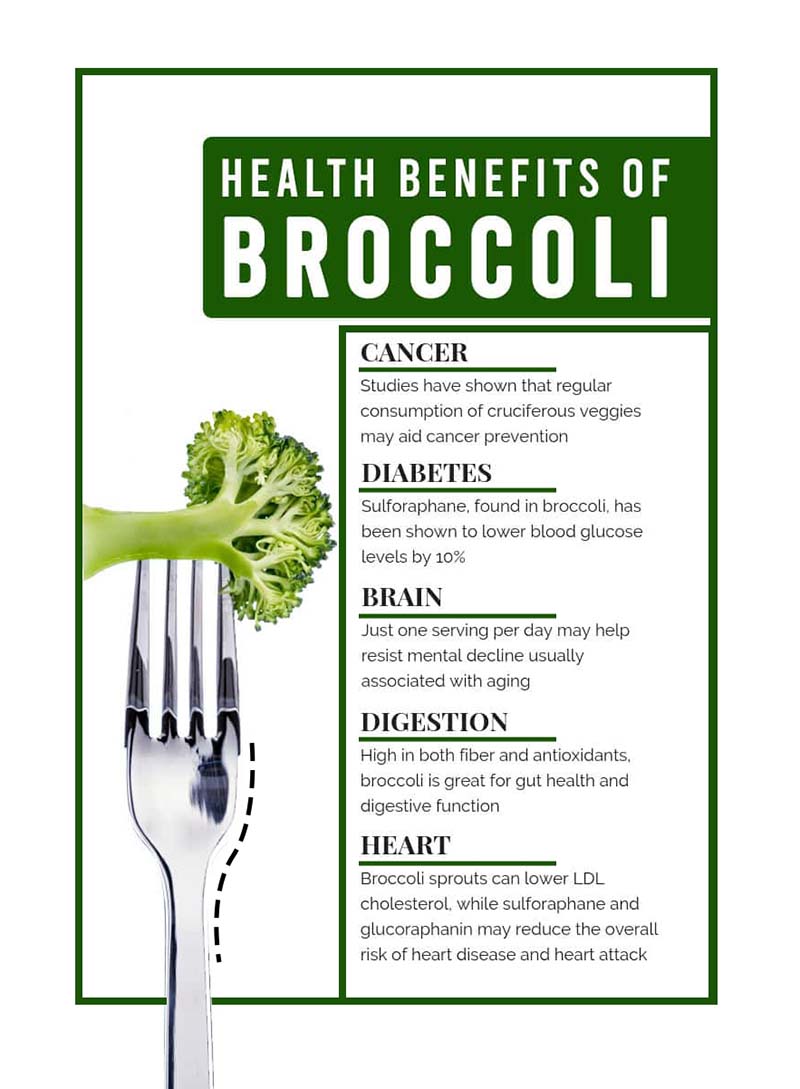
- Anti-Inflammatory Properties: A 2014 study found that sulforaphane in broccoli has anti-inflammatory effects. This could mean eating broccoli helps fight inflammation, which is linked to many chronic health conditions.
- Cholesterol Management: Broccoli’s soluble fiber can lower cholesterol levels. This fiber binds with bile acids in the digestive system, helping to remove cholesterol from the body.
5. Some Notes When Using Broccoli
While broccoli is highly nutritious, there are some things to consider:
- Digestive Discomfort: Broccoli is high in dietary fiber, which is usually good for digestion. However, too much broccoli can cause digestive issues like gas or irritation. This is common with cruciferous vegetables. To avoid discomfort, introduce broccoli slowly into your diet and cook it, which makes it easier to digest.
- Interactions with Blood-Thinning Medications: Broccoli has a lot of potassium and vitamin K. These are generally good for you, but too much can affect people taking blood-thinning medications. Too much vitamin K can interfere with these medications, increasing bleeding risk. If you’re on blood thinners, keep your vitamin K intake consistent and talk to your healthcare provider for dietary advice.
6. Diverse Varieties of Broccoli
Broccoli isn’t just one-size-fits-all! It comes in several interesting varieties, each with unique characteristics and flavors. Here’s a look at some of them:
Calabrese Broccoli: This is the type you’re probably most familiar with. It has large green heads and thick stalks, and it’s the kind you’ll usually find in your local supermarket. Calabrese broccoli is versatile and great for many cooking methods.
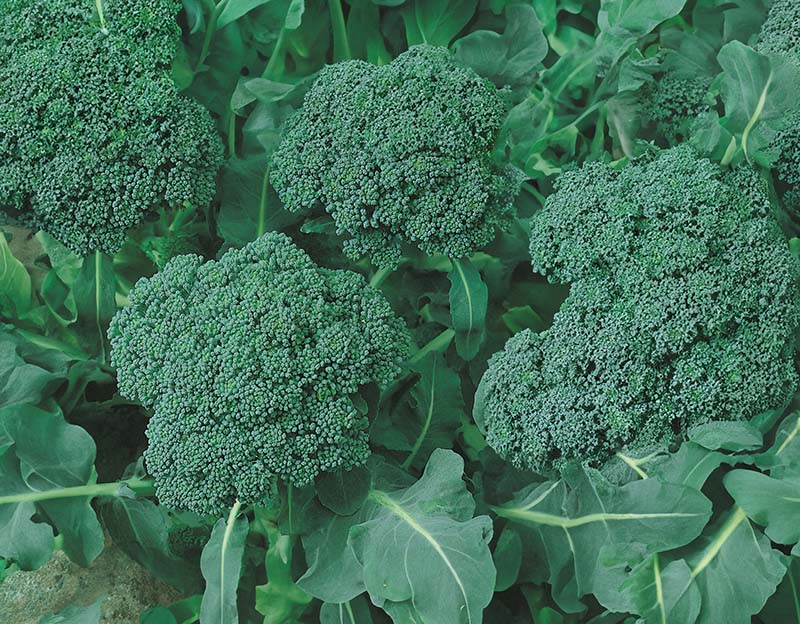
Purple Sprouting Broccoli: This variety is eye-catching with its slim stalks and small, vibrant purple heads. It tastes slightly different from the standard green broccoli, adding a pop of color to your plate.
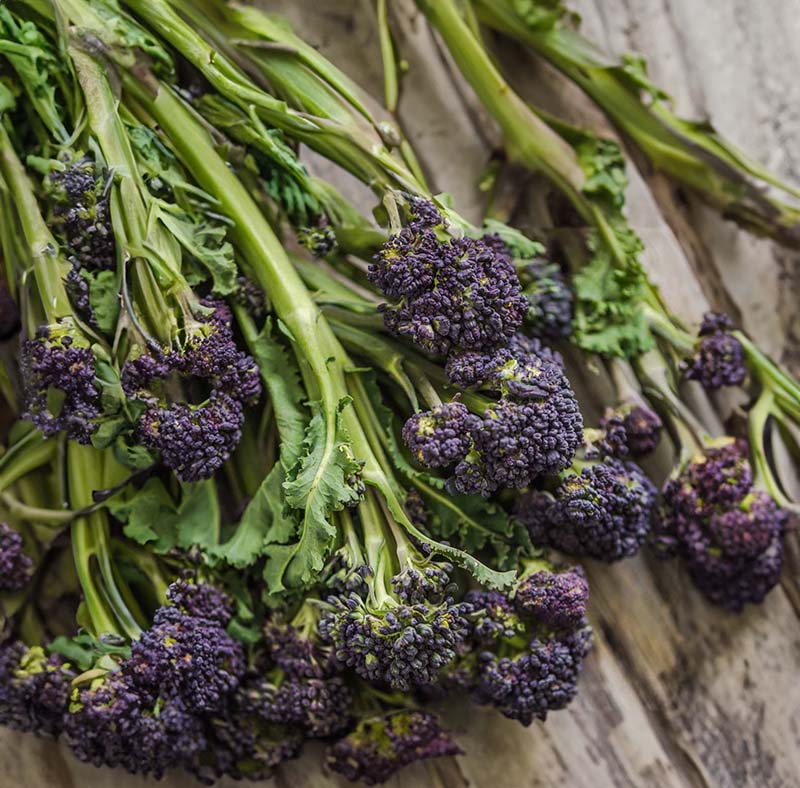
White Sprouting Broccoli: Known for its delicate, tiny white flowers and slender stalks, white sprouting broccoli has a mild flavor and tender texture. It can add a unique touch to your dishes.
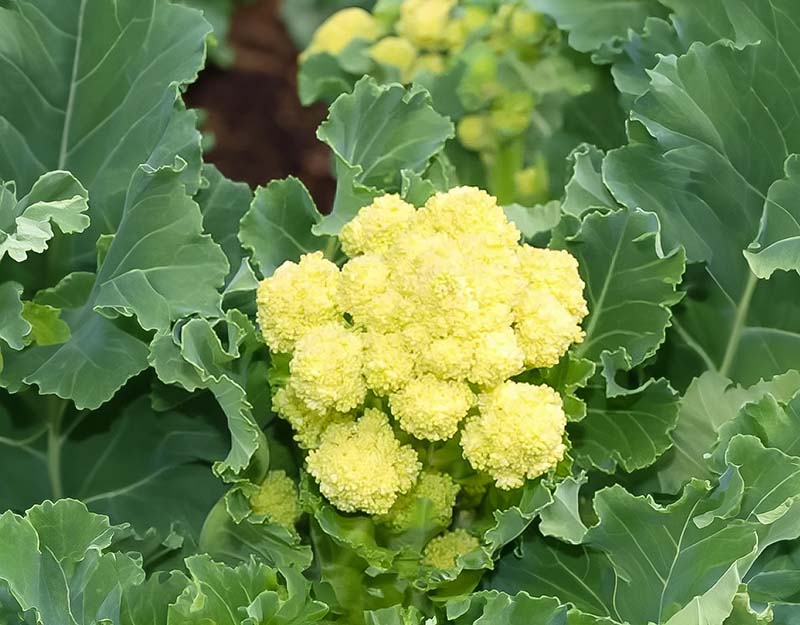
Broccoli Rabe (Rapini): This one has long, thin stems and small florets. It’s a bit bitter and commonly used in Italian cooking, like in pasta dishes and sautés.
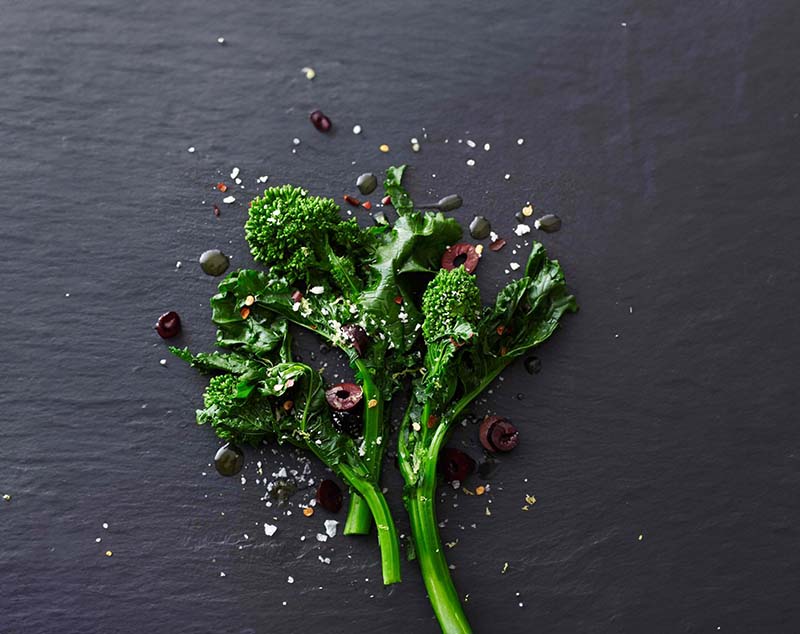
Gai Lan (Chinese Broccoli): Gai lan stands out with its thick, flat, glossy blue-green leaves and small flower heads. A staple in Asian cuisine, it has a slightly bitter taste and a crisp texture.
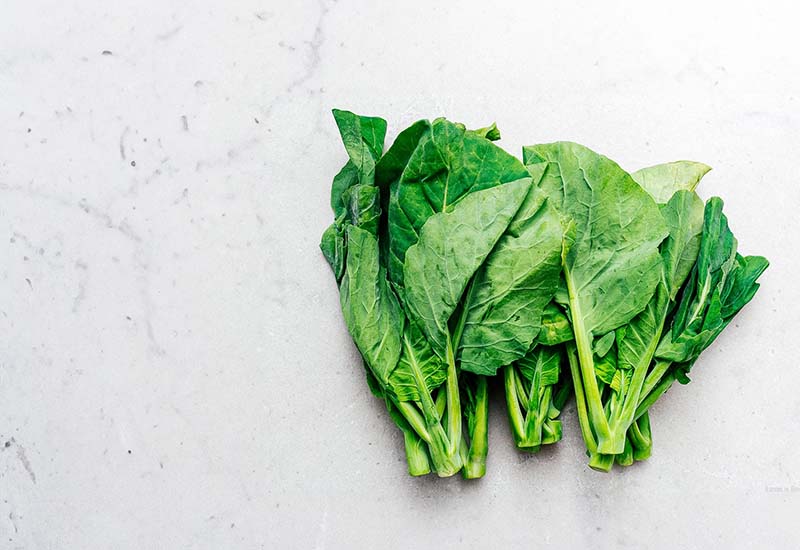
Broccolini: A hybrid of broccoli and Chinese broccoli, broccolini has long, bright green stems and larger florets. Its flavor is milder, a bit sweet, and earthy. It’s great for stir-fries and roasting.
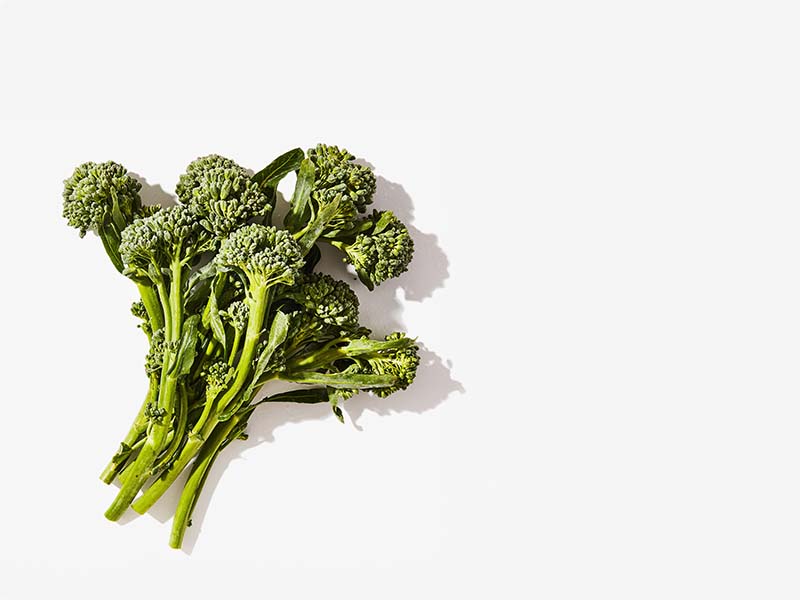
7. FAQs
7.1 How much Broccoli should i eat to lose weight?
To lose weight, aim to consume broccoli 2-3 times a week, totaling about 400 grams (approximately 2 medium florets) per week.
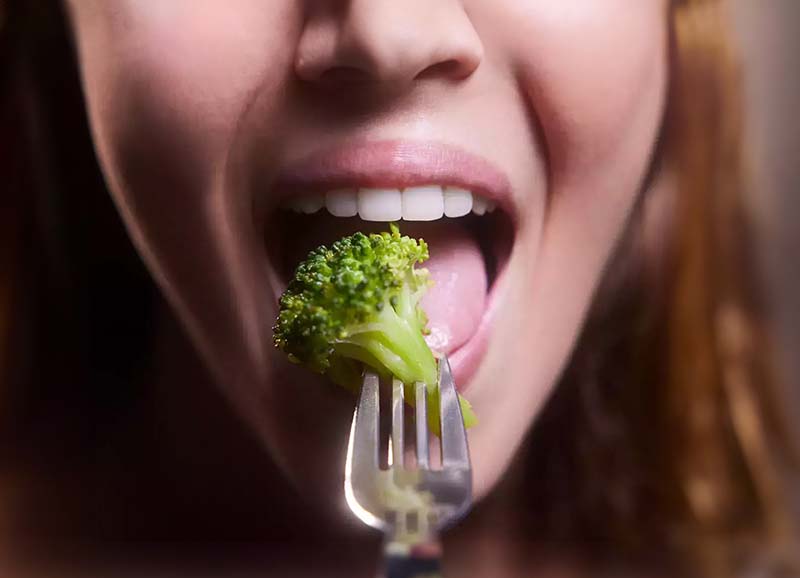
7.2 Is raw broccoli good for weight loss?
Yes, raw broccoli is great for weight loss. It’s low in calories, rich in fiber, and full of essential nutrients. The fiber helps you feel full, reducing hunger and snacking urges. Plus, phytochemicals in broccoli can help break down fats.
8. Conclusion
So, “Does broccoli help you lose weight?” Absolutely! This versatile green veggie is not only low in calories and high in fiber, but it also has fat-burning potential, making it a great ally in your weight loss journey. Broccoli can be a delicious and nutritious addition to your meals.
We’d love to hear how broccoli has helped in your weight loss or health journey. Got any creative broccoli recipes or tips? Share them in the comments!
And remember to check out more blogs from Essential24 for more insights into health, nutrition, and lifestyle. Stay informed and motivated on your path to a healthier you.


